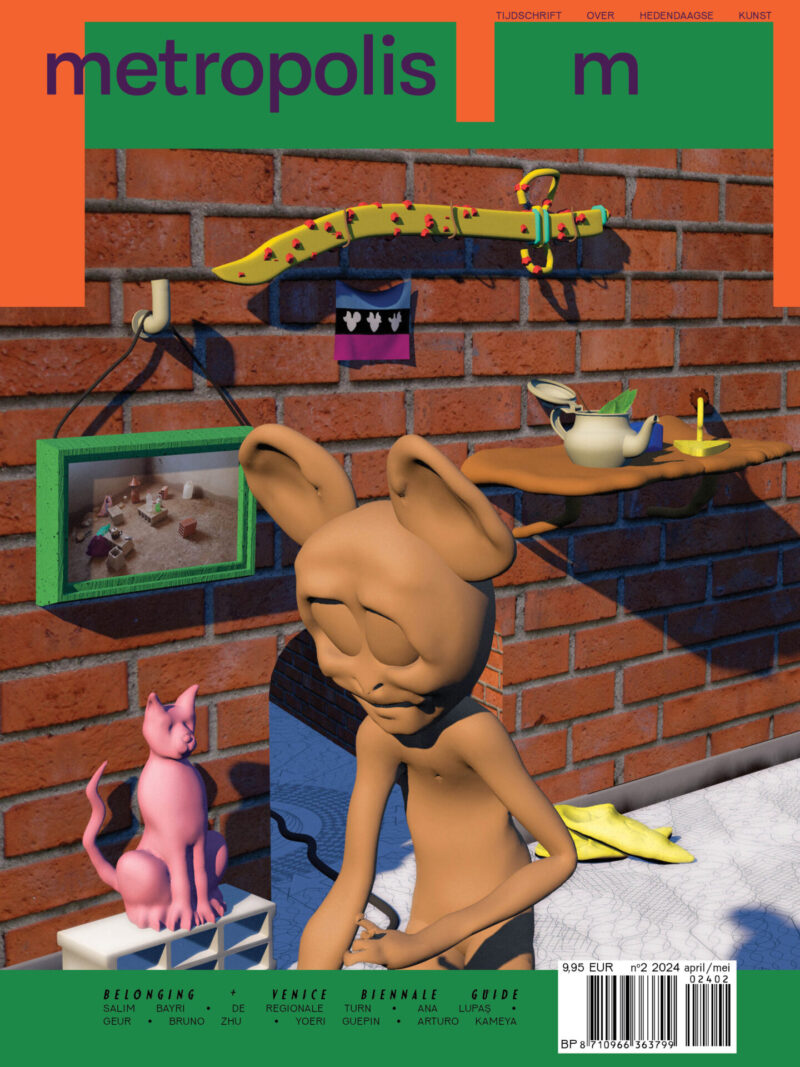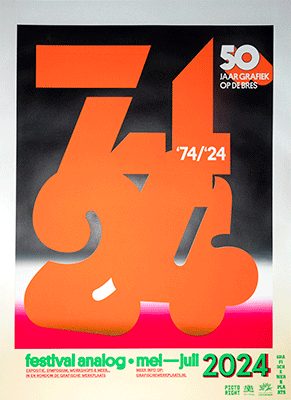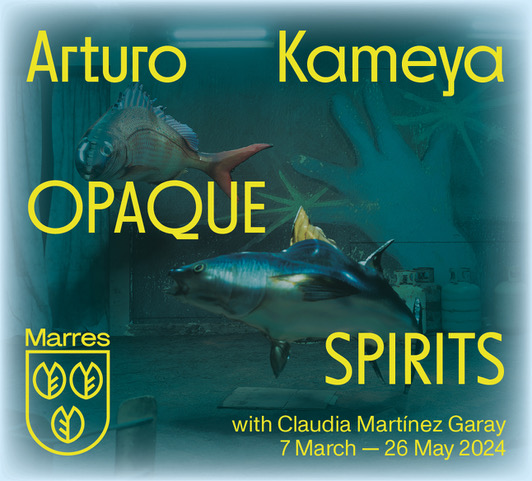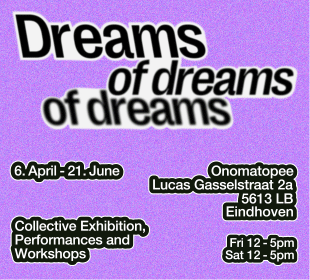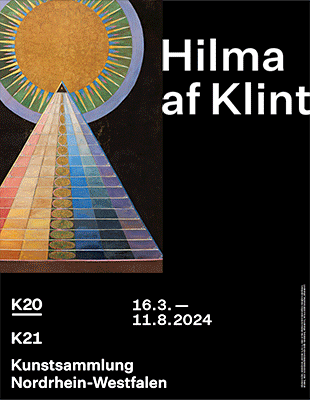
Screenshot of What Remains by Iodine Dynamics (https://iodinedynamics.com/whatremains.html)
Storming the Gamergate – a conversation with Lídia Pereira
Artist and PhD-student Lídia Pereira storms the gamergate to disrupt the essentialization of women’s roles in the video game industry. How can video games be used as feminist tactical media? And how can this expose and challenge the root of exclusions which are pervasive to gaming communities?
Can you give an introduction to your PhD project, ‘Storming the Gamergate?’
[answer Lídia Pereira] ‘Storming the Gamergate’ proposes to explore the potential of videogames as a tactical artistic medium. The core question at this phase of the research process concerns how video games can be used as feminist tactical media to expose the root of exclusions (based on sex, gender, class, race, ethnicity, ability, etc.) which are pervasive to gaming communities. Using a materialist feminist lens, the investigation will attempt to read the reproduction of ideologies of sexual difference in relation to dominant modes of production. Since I am at the beginning stages of my research project, I have a few possible research paths I am interested in exploring. I want to organize collective play and modding sessions, during which participants modify existing games, game jams and other ludic experiments, take annotated videogame walks in the tradition of Situationist psychogeography, develop small game prototypes, talk to industry workers and labor organisers, and engage in practices of counter-mapping, that is, graph the networks of power and interest at the heart of the videogames industry. Throughout these endeavours, I will be paying particular attention to collaboration, facilitation, and pedagogy, which are central to my artistic practice.’
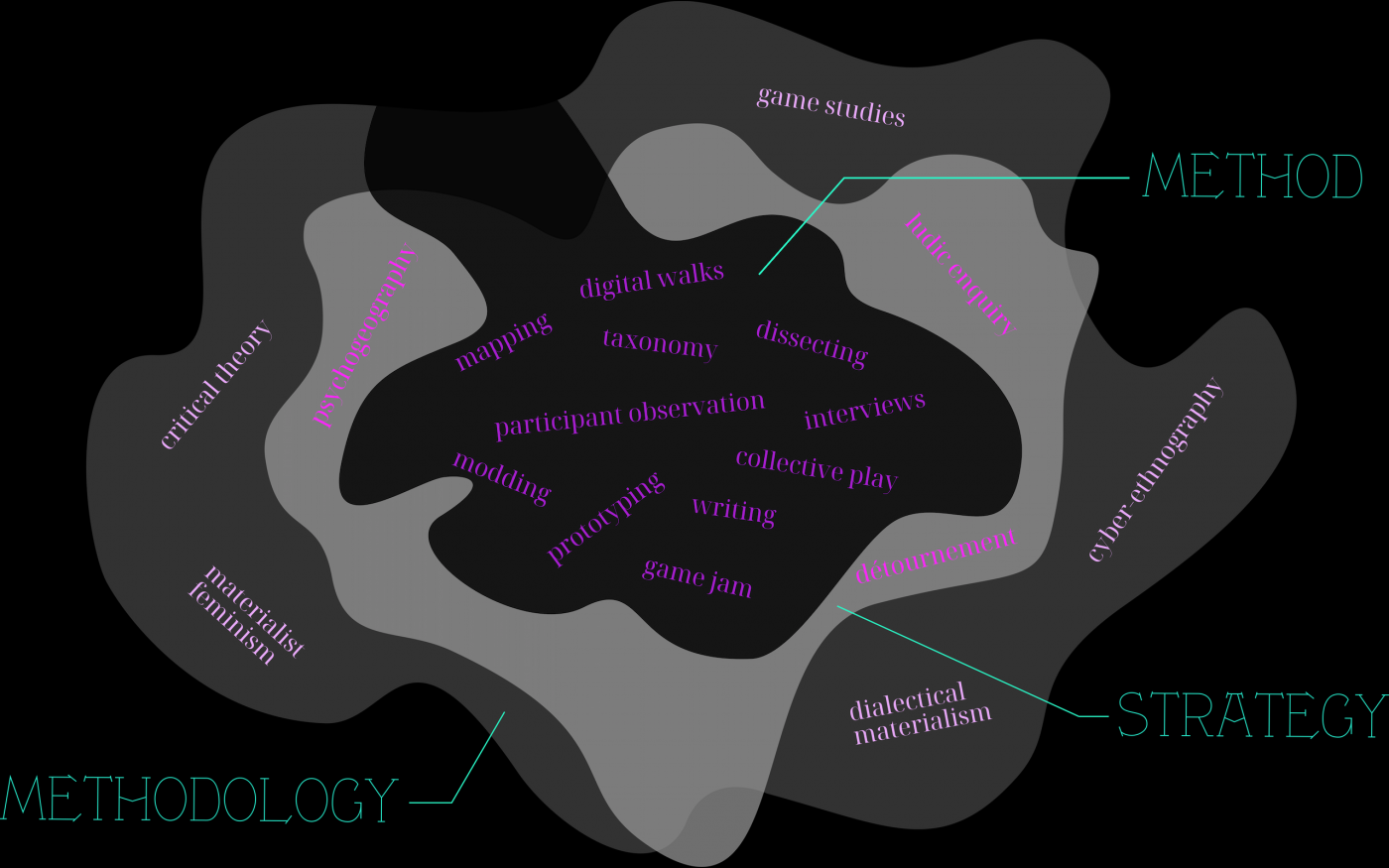
Map of research methods, methodology and strategy inspired by Falk Hübner (https://www.forum-online.be/en/issues/herfst-2020/op-weg-naar-een-vruchtbare-vallei)

Copies of the 13th Issue of the Pervasive Labour Union zine: Fed Up!
The title of your project refers to the infamous Gamergate, which was an online harassment campaign in 2014 that targeted female video game designers and critics. Can you explain the position of your project in relation to Gamergate and its repercussions?
[answer Lídia Pereira] ‘The expression ‘storming the gate’ often refers to an attempt to regain access to something from which one has been excluded. This power imbalance normally favours the one safely guarded by the gate. Here, we have the guarded community of the ‘gamers’ vs the excluded Other. When I named the project, that is what I had in mind. Not a literal assault on individual ‘gamers’, but a radical questioning of the system that produces them. Several accounts of how Gamergate’s events and tactics foreshadowed the rise of the alt-right reveal the urgency in researching and understanding videogame cultures and subcultures.’
Can you explain how the Other is excluded from video games currently? How do women fit into this?
[answer Lídia Pereira] ‘The experience of women working in the video game industry is rife with stories of exclusion. To give just one of many such examples, in July 2020, several senior figures from French publisher Ubisoft, one of the largest such companies, resigned in the wake of a high number of sexual harassment complaints. This is the rule rather than the exception. And it disproportionately affects anyone who falls outside the ‘norm’ – anyone who is not a straight, white, cis-male. There are other factors at play, but naturally this toxic environment ends up impacting and determining the types of games we play, what they represent, who they represent and how. My research departs from the understanding that representation and diversity in videogames cannot be achieved without parallel significant material changes in the lives of women and other historically excluded minorities.’

Screenshot of A Prison Strike by Molleindustria (https://molleindustria.itch.io/a-prison-strike)
To disrupt this essentialization of women’s roles in the video game industry, you propose to treat video games as ‘tactical media’. What does this entail?
[answer Lídia Pereira] ‘In my understanding of the term, ‘tactical media’ is the activist appropriation of media for purposes and uses other than the originally intended ones. The tactical use of the unique properties of the medium aids to the strength of the message, often antagonistic in character. The proposal that videogames had entered the toolbox of ‘tactical media’ was made by Nick Dyer-Witherford and Greig de Peuter in their book “Games of Empire” [1], observing the growing array of activist-made videogames with an explicit political message from the year 2000 onwards. Dyer-Witheford and de Peuter, propose this happened due to a wider spread of technological literacy and access to technology. According to them, tactical games embody the do-it-yourself ethos of gaming culture and combine it with social criticism and radical political activism. For my own research purposes, I will investigate the possibilities afforded by an approach to videogames in the tradition of tactical media through game mods and prototypes. I believe this can challenge medium conventions and make visible the economic infrastructure sustaining the videogame industry.’
How do you situate your artistic research in the ongoing evolution of tactical media?
[answer Lídia Pereira] ‘I situate my artistic research in the context of, among others, projects like Molleindustria. Molleindustria is an Italian game studio which regularly tackles issues ranging from alienated work, business malpractices to the global division of labour. Molleindustria is the most quoted example of videogames being used as tactical media, and their projects regularly tackle issues ranging from alienated work, business malpractices to the global division of labour. Then there is ‘What Remains’, by Iodine Dynamics, an 8-bit game for the NES console released in 2018, and ‘Darshan Diversion’, a videogame created by Padmini Ray Murray, Joel Johnson and KV Ketan. ‘What Remains’ addresses climate change and the propaganda machine behind its denial. ‘Darshan Diversion’ was created in the context of a game-creation event and deals with the topic of women being denied entrance to a religious space because they are menstruating. As previously mentioned, having begun my research project very recently, these initiatives are coming into my research as case studies. I am currently in the process of investigating the unique affordances of videogames as tactical media, its strengths and potential pitfalls.’
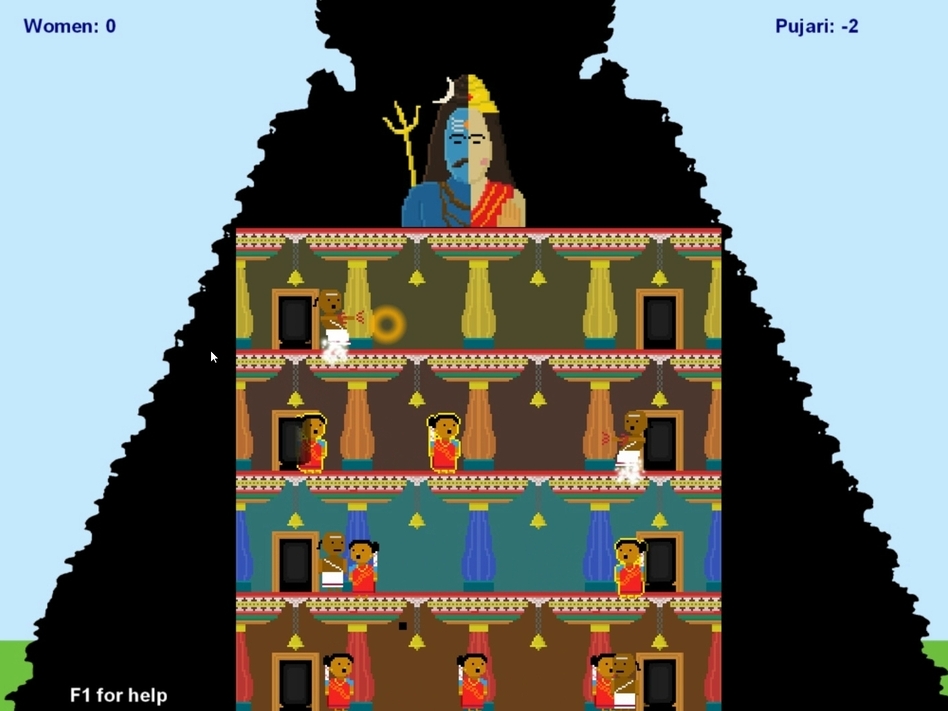
Screenshot of Darshan Diversion by Padmini Ray Murray, Joel Johnson and KV Ketan
Your oeuvre tackles the challenges of making visible the invisibilities of both labour and the capitalist system that facilitates its disappearance. How will ‘Storming the Gamergate’ expose the inner workings of capitalism?
[answer Lídia Pereira] ‘To provide a well-rounded answer, I would first like to delineate my reasons for choosing to engage with the medium of videogames. First, they offer the possibility of representing a system of interconnected parts. One action taken in one part of this system has repercussions throughout. Second, beyond merely representing the system, the player is the one taking the actions that affect its functioning. The player changes parameters and learns how they affect the outcome of the whole. This fulfils a pedagogic function that mere representation or explanation could not. According to researcher Jamie Woodcock: “This pedagogic, or teaching, element is particularly powerful with games as it allows players to interact and experiment with a system.”[2] Finally, the potentiality for systemic representation in videogames allows for the grounding of ideology in the material realities of production.As you have mentioned, in my artistic practice, I often attempt to make visible what has been obscured, investigating the field of digital technology to reveal the inner mechanisms of economic interest that shape everyday ideology, attitudes and practices. I then seek to disseminate these investigations in the form of collaborations, workshops, and publications. Through engaging with videogames, I am exploring a possible path with which to communicate the systemic analysis integral to my research endeavours. While a more complete answer to this question will only come at the end of my research trajectory, I can say now that ‘Storming the Gamergate’ will attempt to expose the inner workings of capitalism by investigating this capacity of videogames to represent expressive and interactive systems.’
[1] Nick Dyer-Witheford and Greig De Peuter, Games of Empire: Global Capitalism and Video Games (Minneapolis, MN: University of Minnesota Press, 2009)
[2] Jamie Woodcock, Marx at the Arcade: Consoles, Controllers, and Class Struggle (Chicago: Haymarket Books, 2019)
Agnieszka Wodzińska
is a writer and art historian